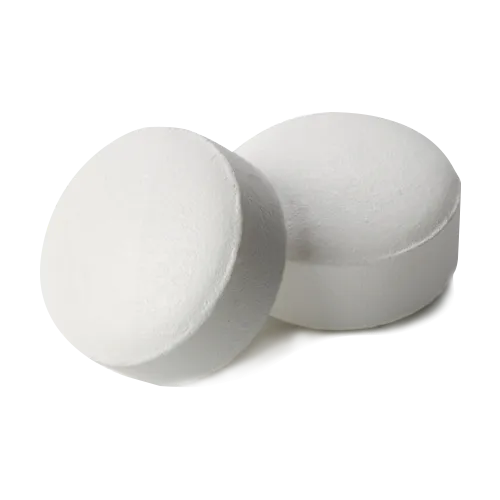Overview
Decadron, generically known as dexamethasone, is a corticosteroid drug used to address various inflammatory and autoimmune disorders. It functions by dampening the immune response and alleviating inflammation, which helps mitigate symptoms like swelling, discomfort, and allergic responses. Commonly prescribed for ailments such as arthritis, intense allergies, asthma, and specific cancers, Decadron comes in forms like tablets, injections, and topical preparations, allowing adaptable administration according to patient requirements.
History of Development and Approval
Dexamethasone was initially created in 1957 by Dr. Philip Showalter Hench, a Nobel laureate for his corticosteroid research. Decadron gained FDA approval in the early 1960s and has since established itself as a reliable treatment for numerous conditions thanks to its strong anti-inflammatory and immune-suppressing capabilities.
Key Benefits
- Anti-Inflammatory Properties: Potently diminishes inflammation and associated symptoms.
- Immune Suppression: Aids in controlling autoimmune disorders by curbing immune overactivity.
- Broad Applications: Effective for diverse conditions ranging from allergies to oncology.
- Varied Forms: Offered in tablets, injectables, and topicals for convenient use.
Unique Properties
Decadron stands out for its superior strength and extended effect duration relative to other corticosteroids, making it ideal for severe inflammation management with less frequent dosing. Its capacity to penetrate the blood-brain barrier renders it valuable for neurological issues like brain swelling from tumors or operations.
Comparison with Similar Medications
Relative to other corticosteroids, Decadron provides:
- Greater Potency: Achieves results at lower quantities.
- Prolonged Action: Offers sustained symptom relief, minimizing dosing needs.
- Blood-Brain Barrier Penetration: Beneficial for CNS-related treatments.
Safety and Tolerability
Decadron is usually safe when followed as prescribed. Common effects include sleep disturbances, emotional shifts, and heightened hunger. Infrequent serious issues may involve adrenal gland suppression, bone weakening, and higher infection susceptibility. Ongoing supervision by a medical professional is advised, particularly for extended use, to maintain safety and efficacy.
Indications for Use
Decadron is indicated for:
- Inflammatory Disorders: Like rheumatoid arthritis, lupus, and IBD.
- Allergic Conditions: Severe rhinitis and asthma flares.
- Autoimmune Issues: Multiple sclerosis and vasculitis types.
- Cancer Management: To lessen inflammation and chemotherapy side effects.
- Neurological Problems: Brain edema and spinal injuries.
Dosage and Administration
Adults: Doses vary from 0.5 mg to 10 mg daily, divided; higher initially for severe cases, then tapered.
Children: Weight-based, 0.08–0.3 mg/kg daily, divided; provider-determined.
Elderly: Lower doses to reduce risks like bone loss.
Timing: Morning doses mimic cortisol cycle; last dose early afternoon for sleep.
Frequency: Single to multiple daily, per condition.
Food Impact: Minimal; with food reduces stomach upset.
Mechanism of Action
Dexamethasone binds glucocorticoid receptors, suppressing inflammation and immunity by inhibiting cytokines and prostaglandins.
Molecular and Cellular Targets
It activates glucocorticoid receptors across tissues, altering gene expression to cut inflammatory mediators.
Metabolic Pathways
Metabolized in liver via CYP3A4 to inactive forms, excreted in urine.
Biochemical Changes
Lowers inflammatory mediators, reducing swelling and pain.
Physiological Effects
Alleviates inflammation symptoms, suppresses immunity for autoimmune control.
Composition
Active Ingredient: Dexamethasone, core for anti-inflammatory effects.
Inactive Ingredients: Lactose, magnesium stearate, starch for stability.
Side Effects
Common: Insomnia, mood swings, appetite increase, weight gain.
Rare: Adrenal suppression, osteoporosis, infections.
Serious: GI bleeding, hypertension, diabetes require prompt attention.
Prevention of Side Effects
Use lowest effective dose briefly; monitor bone health, taper gradually. Healthy diet/exercise help.
Contraindications
Avoid in systemic fungal infections, hypersensitivity, or untreated infections.
Warnings and Precautions
Monitor for infections, bone density, blood pressure. Caution in diabetes, hypertension, psychiatric history.
Drug Interactions
Interacts with NSAIDs increasing GI risks; antifungals, antibiotics alter metabolism. Inform provider of all meds.
Overdose
Symptoms: severe mood changes, high blood pressure, fluid retention. Seek emergency care.
Pharmacokinetics
Absorption: Rapid oral absorption.
Distribution: Widely, crosses blood-brain barrier.
Metabolism: Liver to inactive metabolites.
Elimination: Urine; half-life 3-4 hours.
Dosage Forms
Tablets (0.5-6 mg), injectables, topicals. Versatile for preferences/needs.
Pregnancy and Breastfeeding
Use only if benefits outweigh risks; may cause fetal harm. Excreted in milk; consult provider.
Storage
Store at 20°C–25°C (68°F–77°F), dry, light-protected, away from children. Dispose expired properly.
Clinical Evidence
Trials show Decadron reduces inflammation/symptoms effectively versus placebo. Potency/long action preferred.
Conclusion
Decadron is potent for inflammation/autoimmune management. Benefits include symptom relief/complication reduction. Follow instructions, monitor, healthy lifestyle for best outcomes.




